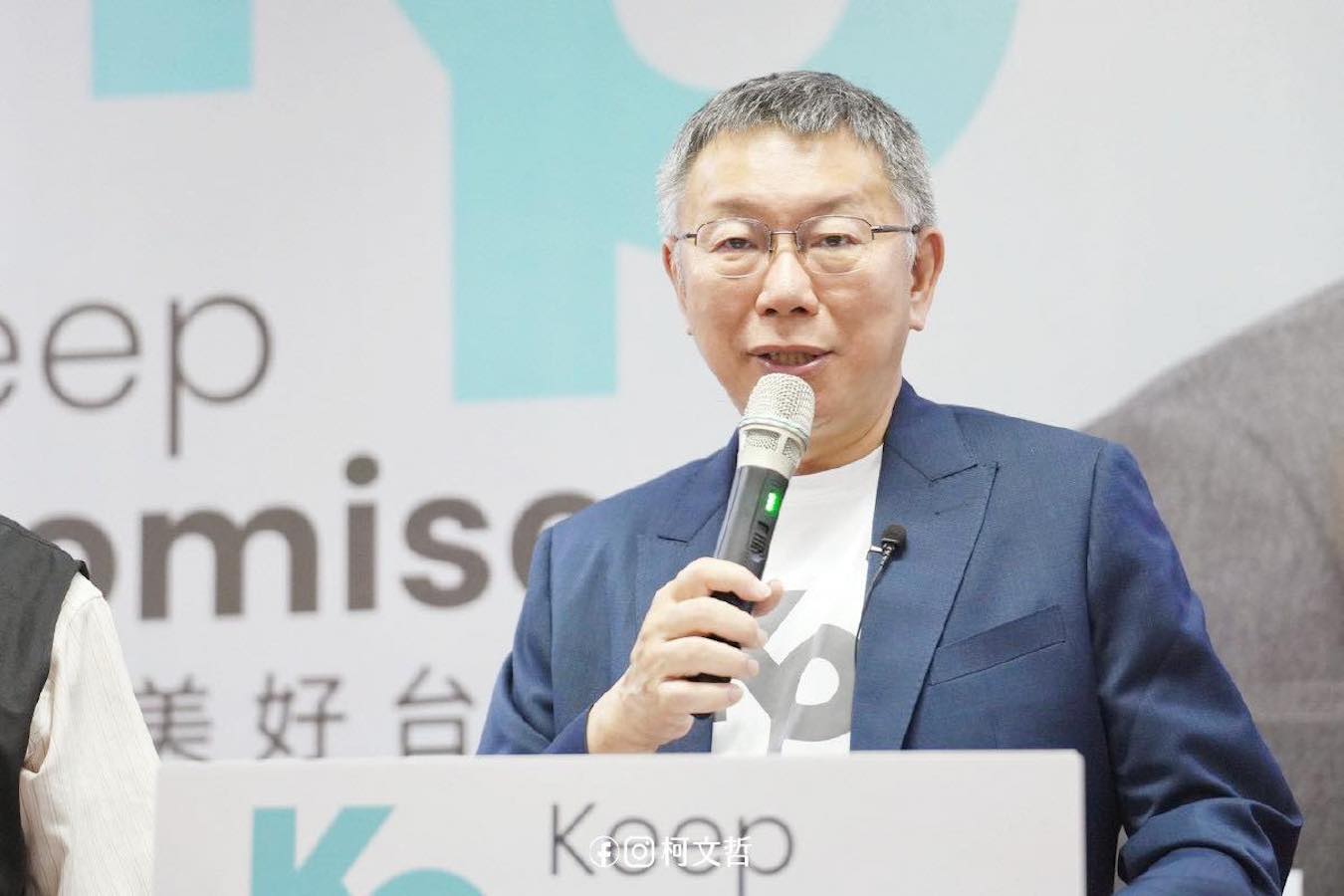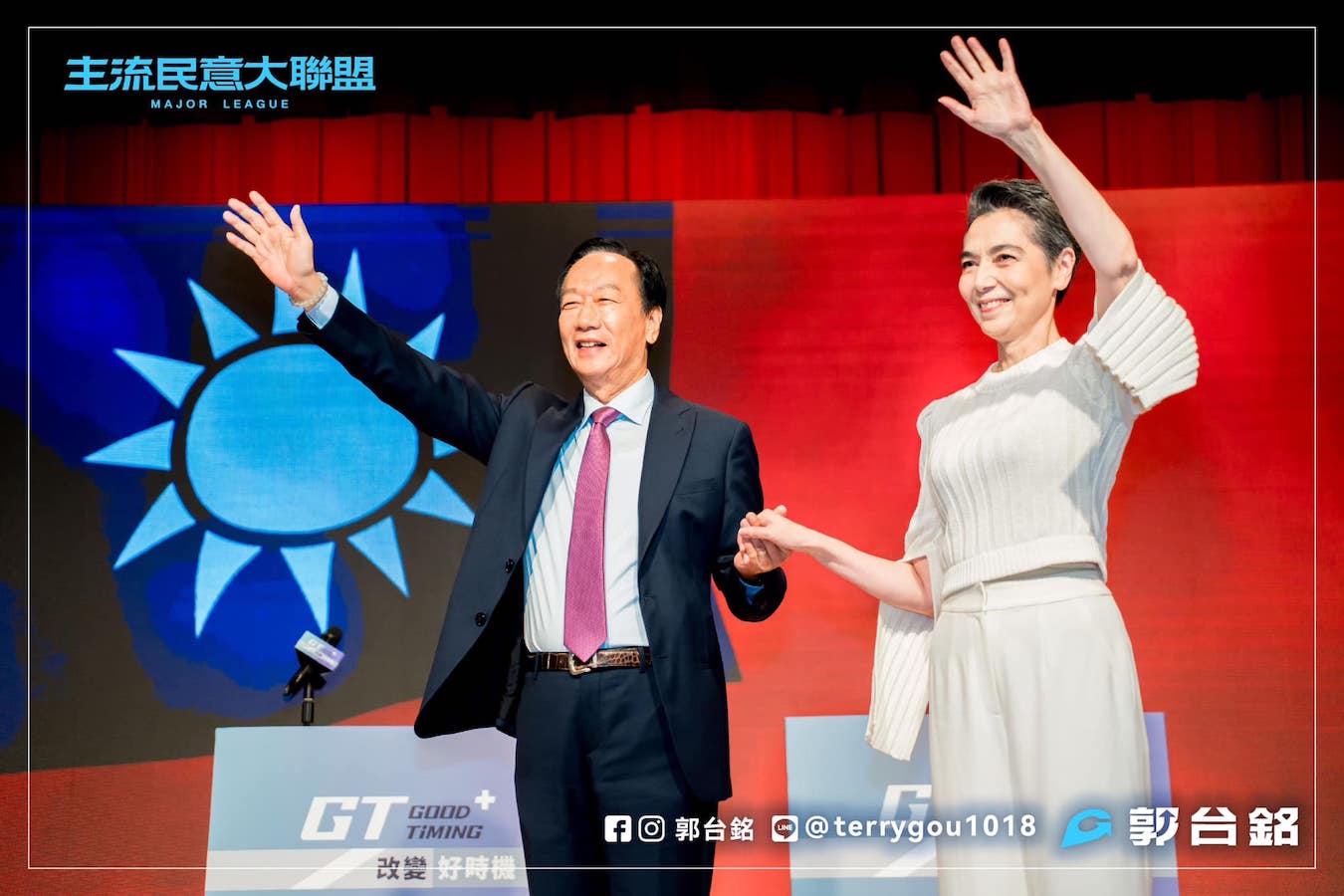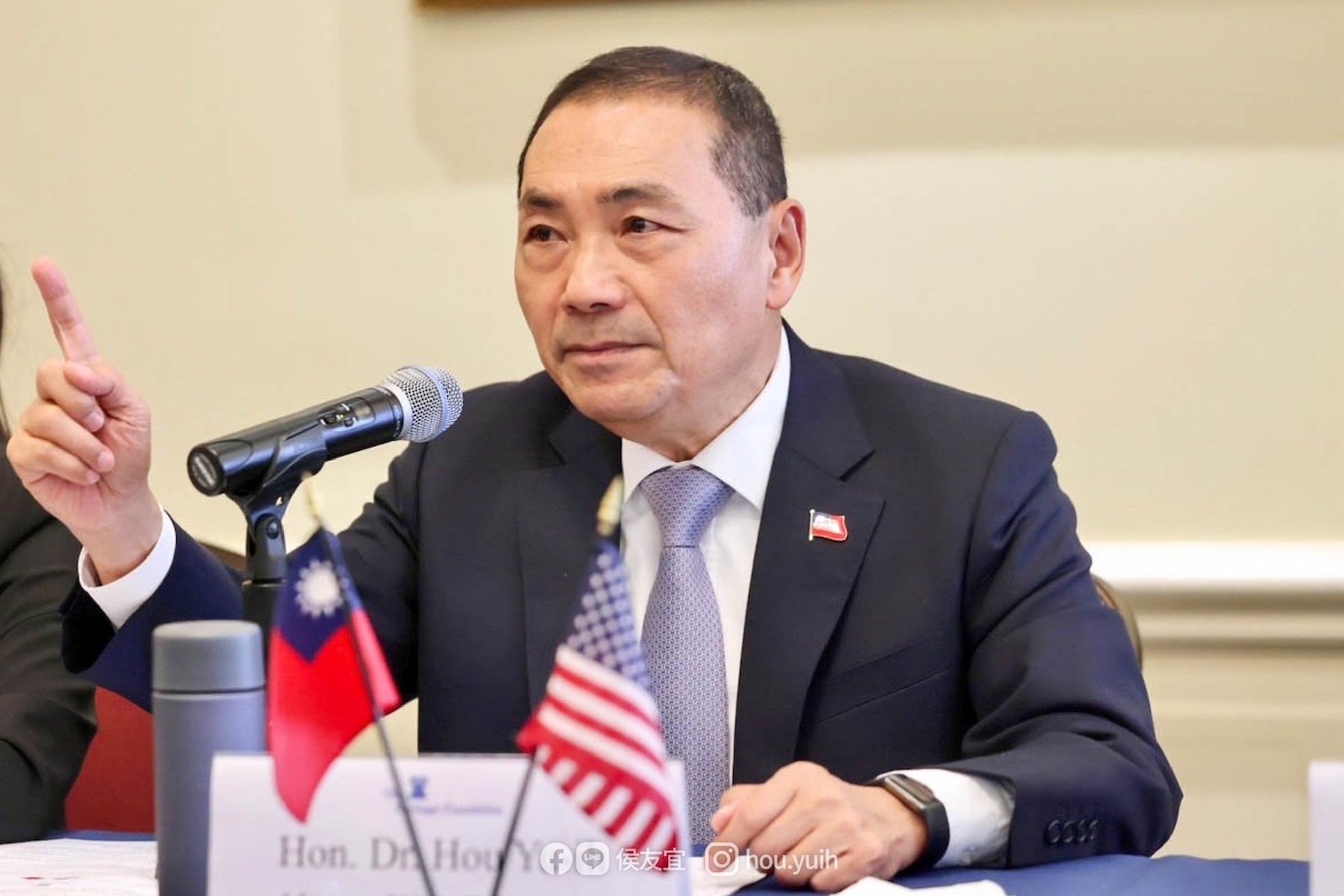by Brian Hioe
語言:
English
Photo Credit: KMT/Facebook
DESPITE MANY PREDICTIONS that a split pan-Blue vote is likely to result in a DPP victory for its presidential candidate, William Lai, Foxconn founder Terry Gou, and TPP presidential candidate Ko Wen-je remain unlikely to pull out of the race. This has been labeled by some to be an irrational political move, seeing as the pan-Blue camp only stands a chance for any of its candidates to win if the other candidates unite behind a single one. Polling shows that Terry Gou, who is trailing in number three, is least likely to win.
By contrast, it is less clear who would win between Ko and Hou. Hou has spent much of the election cycle trailing Ko and Lai at number three, though recent polls suggest that he has potentially rebounded to the number two position. Nevertheless, both candidates do not poll strongly enough to beat Lai, who does not poll in the 40% sometimes, but has a consistently strong position to the other candidates in the 30% range.
As such, today Ko Wen-je called for a primary to be held between opposition parties and for the losers to withdraw. It is to be seen if the idea gains traction, but if this were to take place, it would go a long way to making the current race more competitive.
 TPP presidential candidate Ko Wen-je. Photo credit: Ko Wen-je/Facebook
TPP presidential candidate Ko Wen-je. Photo credit: Ko Wen-je/Facebook
A contributing factor to Lai’s current strength as a candidate is because the pan-Green camp quickly united behind Lai as its strongest possible candidate. Alternative candidates, such as former Taoyuan mayor Cheng Wen-tsan, did not seek to challenge Lai for the DPP’s presidential nomination. As Cheng was touted as Lai’s most likely possible challenger, a contributing factor to his decision not to run was a plagiarism scandal that he faced regarding his master’s degree from National Taiwan University.
Some speculated that a senior DPP heavyweight, such as former premier Su Tseng-chang, could challenge Lai and it was suspected that President Tsai Ing-wen favored her former vice president and current premier, Chen Chien-jen, over Lai. But this also did not take place.
Given how he has behaved in the current election cycle, it is thought that Terry Gou may believe that relying on a semi-populist approach to politics, perhaps taking a page from former Kaohsiung mayor Han Kuo-yu–the KMT’s 2020 presidential candidate–would catapult him to a strong position relative to Ko or Hou. Likewise, despite running as an independent, Gou could largely fund his own run as one of Taiwan’s richest men.
 Foxconn founder Terry Gou (left) and his running mate Tammy Lai (right). Photo credit: Terry Gou/Facebook
Foxconn founder Terry Gou (left) and his running mate Tammy Lai (right). Photo credit: Terry Gou/Facebook
Yet Gou’s run may also be due to a desire to strike back at the KMT. The KMT chose its presidential candidate not through an open primary, but through a closed nomination process in which the party’s central standing committee decided on its choice of candidate.
Party chair Eric Chu was originally thought to have sought to use the closed nomination as a way to ensure that he would be the KMT’s presidential candidate instead of Hou You-yi, who was polling most strongly among the KMT”s potential candidates at the time. But with Chu marginalized in the race after Gou announced his intention to seek the KMT’s presidential nomination, the candidate instead became Hou, who was polling higher at the time. Some reports suggest that Gou believed that he would become the KMT candidate after meetings with the KMT leadership, and felt slighted when the KMT settled on Hou. Such bruised feelings–or perhaps a strong sense of ego–may be contributing factors as to why Gou may want to strike back at the KMT.
Hou was probably the logical choice at the time for the KMT, seeing as of the potential pan-Blue candidates, he was polling the best. But Hou turned out to be a weaker candidate than anticipated. This can partly be attributed to his own ineptness as a candidate, in that he came under fire for continuously refusing to commit to policy, and instead constantly speaking in vagaries during public comments. Yet neither has the KMT party machine proven functional enough to cover for Hou’s weakness.
 KMT presidential candidate Hou You-yi. Photo credit: Hou You-yi/Facebook
KMT presidential candidate Hou You-yi. Photo credit: Hou You-yi/Facebook
But neither would Ko be able to be persuaded to withdraw from the race in favor of Hou, particularly seeing as the KMT would be unlikely to accept Ko becoming its presidential candidate. For one, Ko is incentivized to stay in the race because of his need to maintain an independent political image from the KMT, seeing as his TPP has positioned itself as a party that is independent of and critical of both the KMT and DPP even though it is largely pan-Blue. Ko would have likely ran simply to raise the odds of TPP candidates winning in local elections, but considering that he sometimes polls higher than Hou You-yi does, Ko has probably done better than even his own party anticipated. Even if Ko does not have realistic odds of winning the presidency, his presence in the race is still beneficial to the TPP.
It may be, then, that Lai wins because of a divided pan-Blue camp rather than because of his merits as a candidate. This could potentially take place even without a primary for opposition candidates, in even if one candidate would come out of the primary, they may not be able to win over former supporters of the other two candidates.
Indeed, Lai has not been pushed to having to commit to any grand social vision except for maintaining the policies of the Tsai administration because of his lack of serious competition. Provided no major incidents, one does expect him to win the presidency, even if it is another question altogether how the DPP does in local races for the legislature.

